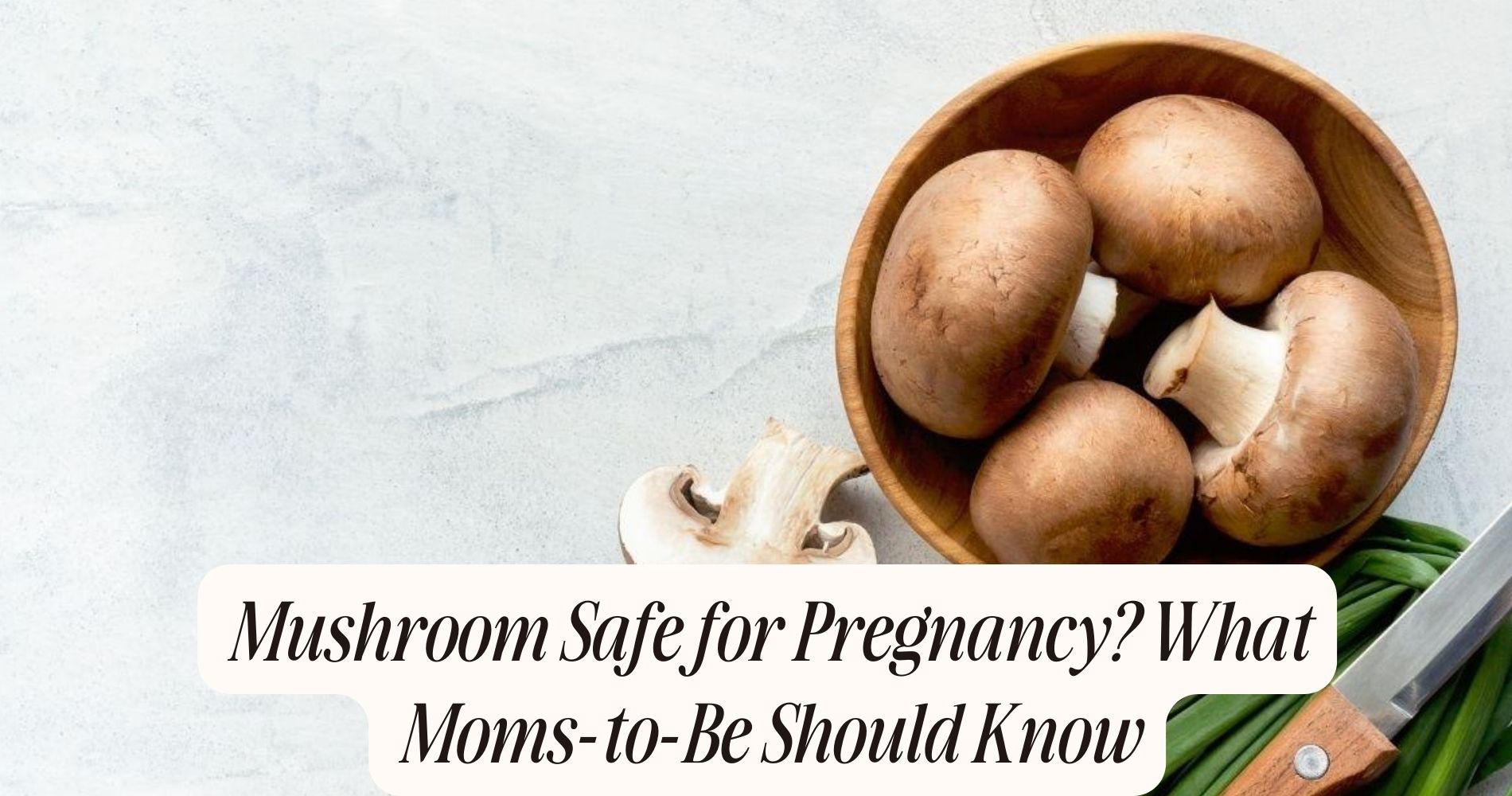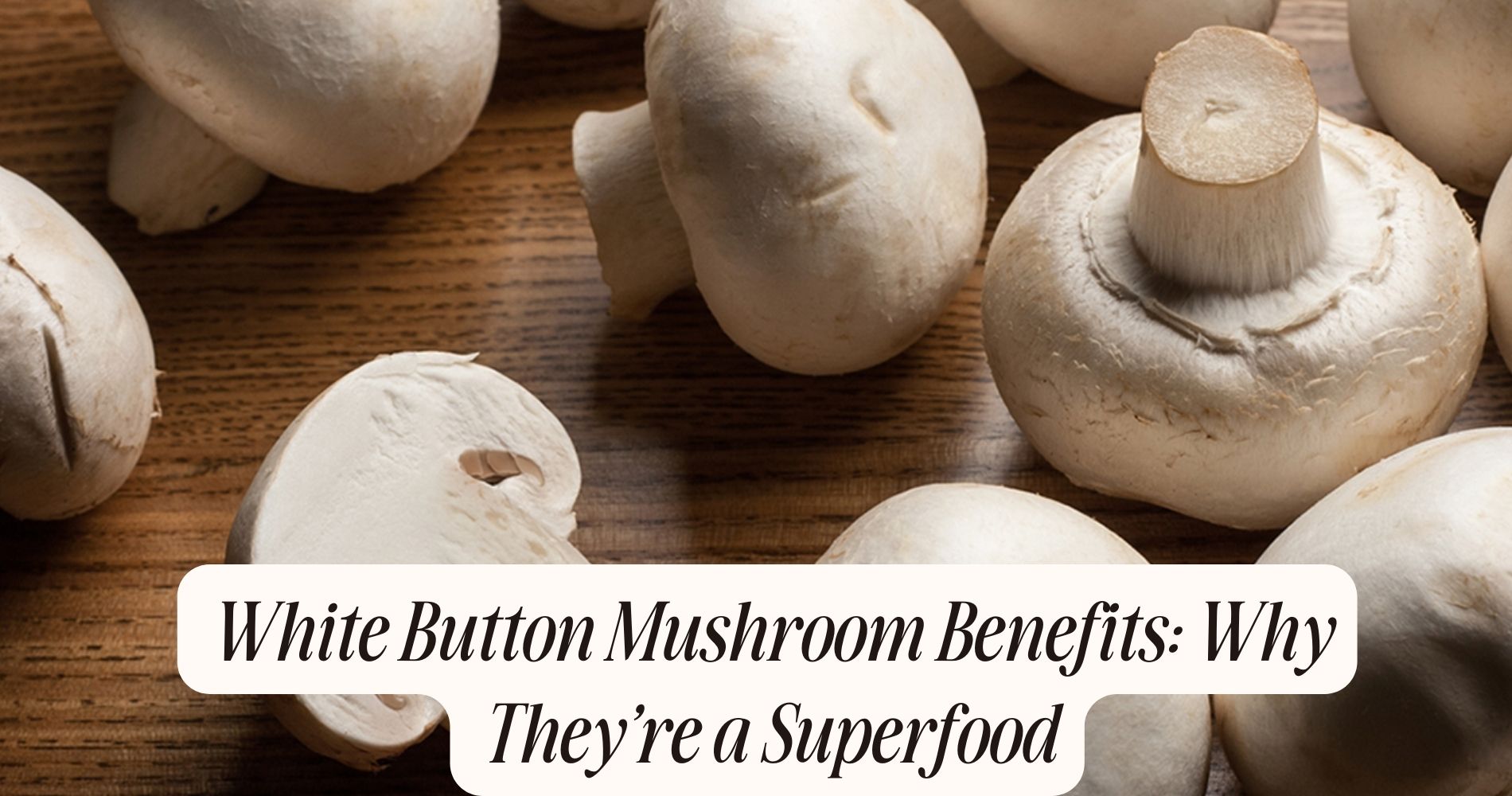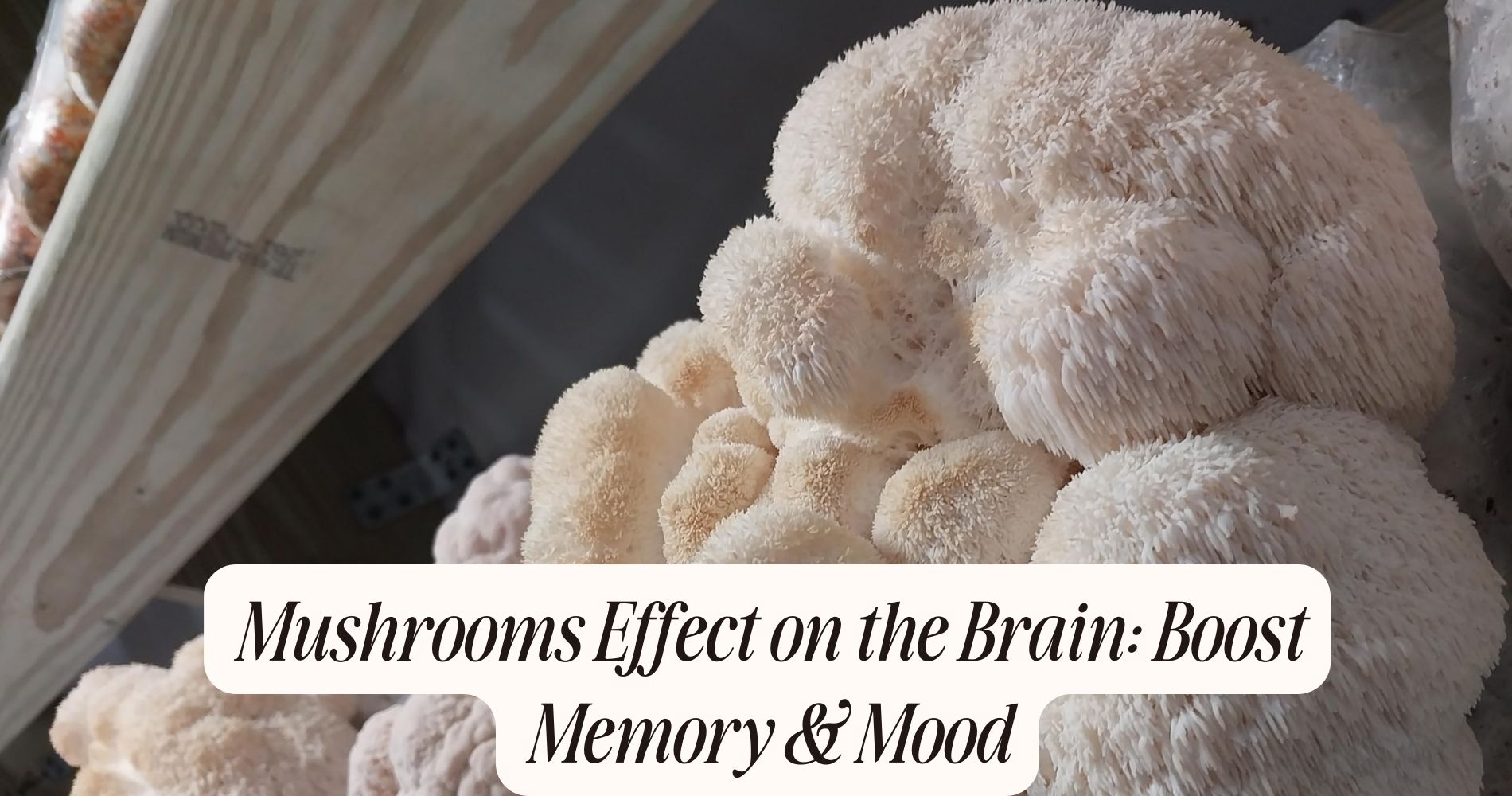
Mushroom Safe for Pregnancy? What Moms-to-Be Should Know
When considering mushroom safe for pregnancy, it's essential to choose the right varieties. Store-bought mushrooms like shiitake, portobello, and white button are rich in B vitamins, selenium, and antioxidants, which help boost immunity and support fetal development. Avoid wild mushrooms, as some may contain harmful toxins. Always cook mushrooms thoroughly to eliminate bacteria and introduce them gradually to check for allergies. With proper preparation, mushrooms can be a nutrient-dense addition to a balanced pregnancy diet. Explore more expert insights on incorporating mushrooms safely into your meals.
Nutritional Benefits of Mushrooms During Pregnancy
Mushrooms, a versatile food choice, can offer significant nutritional benefits during pregnancy. You might be surprised to learn that various mushroom varieties are rich in essential nutrients like B vitamins, selenium, and antioxidants.
These nutrients play an important role in supporting your immune system and promoting fetal development. Mushrooms are low in calories and provide dietary fiber, helping you manage your weight and improve digestion, which is essential as your body changes.

Incorporating a range of mushroom varieties into your diet can enhance your nutritional intake without adding unnecessary calories. For instance, the health benefits of mushrooms include reducing inflammation and boosting heart health, which are important for both you and your growing baby.
Types of Mushrooms Recommended for Pregnant Women
When considering which mushrooms to include in your diet during pregnancy, it's important to focus on those known for their safety and nutritional value.
Shiitake mushrooms are a great choice due to their rich vitamin and mineral content, including B vitamins, which help support energy levels. The shiitake benefits also extend to immune system enhancement, making them a valuable addition to your pregnancy diet.
Portobello mushrooms offer versatility and nutrition, being an excellent source of selenium and potassium. You can easily incorporate them into your meals with portobello recipes, such as grilled portobello burgers or stuffed portobello caps, providing a delicious and nutritious option for expecting mothers.
Always verify mushrooms are well-cooked to eliminate any potential risks associated with raw consumption.
Mushrooms to Avoid While Expecting
Although mushrooms can be a nutritious addition to your diet, it's important to avoid certain types during pregnancy due to potential health risks.
Wild mushrooms, in particular, pose significant dangers because they can be easily confused with toxic varieties. Some wild mushrooms contain toxins that can harm both you and your baby. Consuming these can lead to symptoms ranging from mild gastrointestinal distress to severe liver damage, and in extreme cases, even be life-threatening.

To guarantee your safety, avoid foraging for mushrooms, especially if you're not an expert in identifying edible species.
Stick to store-bought options, as these are cultivated and monitored for safety. Always prioritize your health and your baby's well-being by avoiding the risk associated with unidentified wild mushrooms.
Proper Preparation and Cooking Methods
Ensuring the safe consumption of mushrooms during pregnancy extends beyond choosing the right types; how you prepare and cook them is equally important.
Start by practicing safe handling: wash your hands, clean surfaces, and rinse mushrooms under running water to remove dirt and bacteria. Avoid soaking them, as mushrooms can absorb excess water.
When it comes to cooking techniques, opt for methods like sautéing, grilling, or roasting, ensuring mushrooms reach an internal temperature of 165°F (74°C) to eliminate potential pathogens.
Avoid eating raw or undercooked mushrooms, as they may harbor harmful bacteria.
Potential Allergies and Sensitivities
Have you considered the potential for allergies and sensitivities when consuming mushrooms during pregnancy?
It's vital to be aware of mushroom allergies and recognize sensitivity symptoms. Allergic reactions to mushrooms might include skin rashes, itching, or digestive issues like nausea and diarrhea. Some people may experience respiratory symptoms, such as sneezing or difficulty breathing.

If you've never had mushrooms before, exercise caution and introduce them gradually to monitor your body's response. Make sure you consult a healthcare provider if you notice any unusual reactions.
Understanding your body's reactions helps in making informed dietary choices. Keeping an eye on sensitivity symptoms guarantees you prioritize both your health and your baby's well-being, minimizing risks associated with mushroom consumption during pregnancy.
Expert Opinions on Mushroom Consumption
When considering mushroom consumption during pregnancy, it's important to weigh in on expert opinions to confirm safety for both you and your baby. Health professionals agree that mushrooms, when properly sourced and cooked, are generally safe.
The key lies in adhering to expert guidelines. Avoid wild mushrooms, as their safety can't be guaranteed. Instead, choose commonly consumed varieties like button, shiitake, or oyster mushrooms, which are known for their nutritional benefits.
Verify mushrooms are thoroughly cooked to eliminate potential toxins. Experts emphasize mushroom safety by recommending that you source them from reputable suppliers and avoid consuming them raw.
Trust in evidence-based advice is vital, so consult with your healthcare provider to tailor dietary choices that best support your pregnancy health.
Creative Ways to Include Mushrooms in Your Diet
How can you creatively incorporate mushrooms into your diet during pregnancy while ensuring safety and nutrition?
Start by exploring mushroom recipes that are both delicious and nutritious. Sautéed mushrooms can enhance a vegetable stir-fry, offering a rich source of B vitamins and antioxidants.
For breakfast, consider adding mushrooms to an omelet for a hearty, protein-rich meal. Pair mushrooms with lean proteins such as chicken or tofu in a savory stew, ensuring a balanced intake of essential nutrients.

Culinary pairings like mushrooms with whole grains, such as quinoa or brown rice, can provide a fulfilling meal, supporting your energy needs during pregnancy.
A Convenient Way to Enjoy the Benefits of Mushrooms
For expecting moms looking for an easy way to enjoy the benefits of functional mushrooms, SUPER MUSHROOM GUMMIES by Well Gummies are the perfect choice. These delicious, vegan-friendly gummies contain a blend of 10 powerful mushrooms, supporting immune health, mental clarity, and natural energy—all in a convenient gum chew form. With a fresh wild berry flavor, they taste as good as your favorite candy, without the jitters or crashes. Whether you're balancing a busy lifestyle or just looking for a natural way to fuel your body, these gummies make it simple to stay on track.
Frequently Asked Questions
Can Eating Mushrooms Affect the Baby's Development?
You're concerned about mushrooms affecting fetal health, but they're generally safe. Mushrooms offer essential nutrients like B-vitamins and selenium, supporting your baby's development. Always verify they're cooked thoroughly to avoid potential health risks during pregnancy.
Are There Any Specific Mushroom-Based Supplements Safe During Pregnancy?
When considering mushroom-based supplements during pregnancy, always consult your healthcare provider. Not all mushroom varieties are safe, and supplement dosage matters. Evidence suggests some might be beneficial, but your doctor's guidance guarantees both your and your baby's health.
Is It Safe to Consume Wild Mushrooms While Pregnant?
You shouldn't consume wild mushrooms while pregnant due to mushroom toxicity risks. Accurate wild mushroom identification is essential, but errors can lead to serious health issues. Always prioritize safety and consult healthcare providers for pregnancy-related dietary advice.
How Do Mushrooms Affect Morning Sickness Symptoms?
You might find that mushrooms, rich in nutrients like B vitamins, can help alleviate morning sickness symptoms. Including them as part of your morning sickness remedies may provide relief, but always consult your healthcare provider first.
Can Mushrooms Cause Any Hormonal Changes During Pregnancy?
You might wonder if mushroom varieties can alter your hormonal balance during pregnancy. Generally, mushrooms don't cause hormonal changes. However, always consult your healthcare provider to guarantee safety, especially if you're considering supplements or less common varieties.
Conclusion
Incorporating mushrooms into your pregnancy diet can offer numerous nutritional benefits, provided you choose the right types and prepare them safely. Stick to commonly recommended varieties like button, shiitake, and maitake, while avoiding wild or unfamiliar mushrooms. Guarantee thorough cooking to reduce any potential risks. Always pay attention to any allergic reactions and consult your healthcare provider if you're unsure. By doing so, you can safely enjoy mushrooms' rich flavors and health benefits during this special time.




